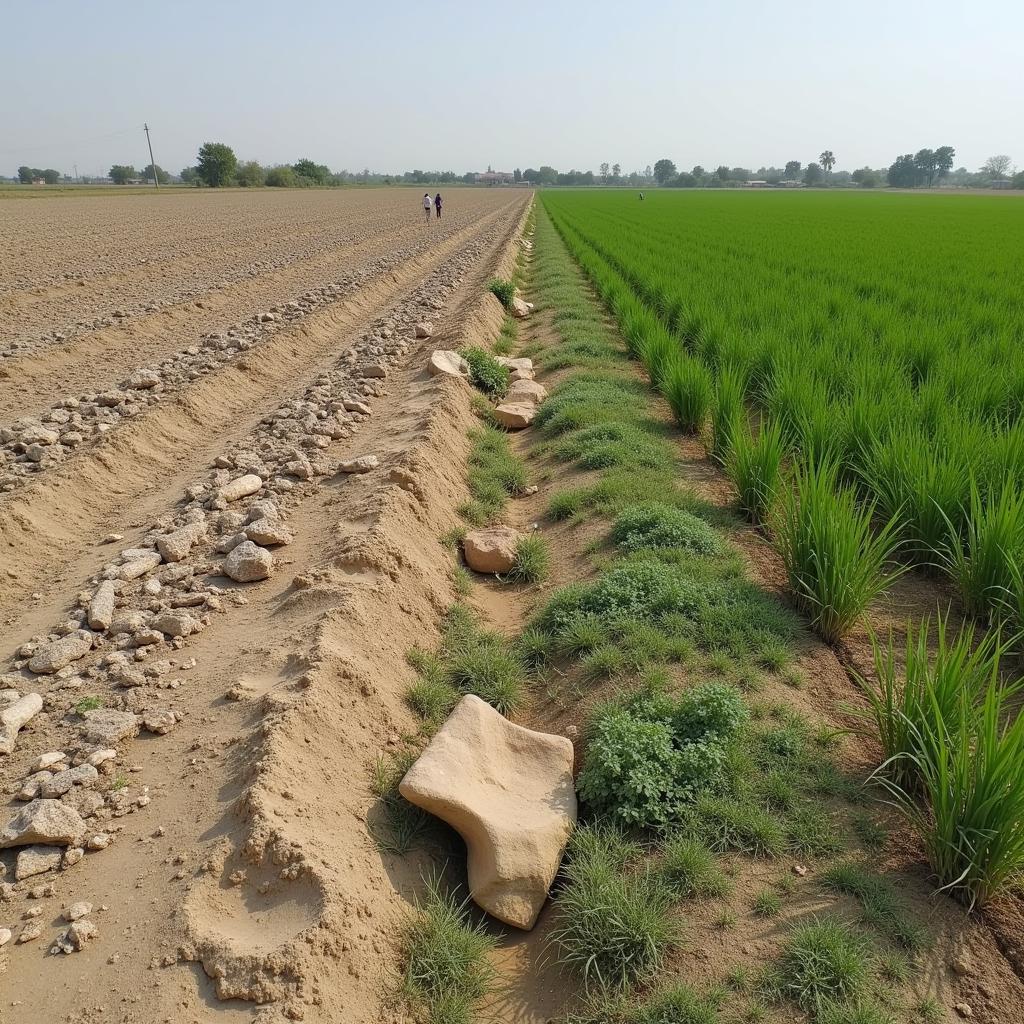Environmental Racism In Pakistan is a pressing issue, reflecting the unequal distribution of environmental hazards based on socioeconomic and ethnic lines. This disparity exposes marginalized communities to greater risks of pollution, resource depletion, and climate change impacts, exacerbating existing inequalities and threatening their livelihoods and well-being.
The Unequal Burden of Pollution: How Environmental Racism Impacts Pakistani Communities
Across Pakistan, marginalized communities, often based on ethnicity, caste, or economic status, bear a disproportionate burden of environmental pollution. These communities are frequently located near industrial zones, waste disposal sites, and other sources of pollution, leading to higher rates of respiratory illnesses, waterborne diseases, and other health problems. For example, the placement of tanneries and textile factories near low-income neighborhoods in Karachi exposes residents to toxic chemicals and wastewater, jeopardizing their health and quality of life.
Water Insecurity and Environmental Injustice
Access to clean water is a fundamental human right, yet many marginalized communities in Pakistan face severe water insecurity due to environmental racism. Pollution from industrial discharge and agricultural runoff contaminates water sources, making them unsafe for consumption and other uses. In rural areas, the unequal distribution of irrigation resources often favors wealthier landowners, leaving marginalized communities struggling with water scarcity for agriculture and domestic needs.  Water scarcity impacting marginalized farming communities in Pakistan This scarcity exacerbates existing poverty and food insecurity, forcing communities to rely on contaminated water sources, further endangering their health.
Water scarcity impacting marginalized farming communities in Pakistan This scarcity exacerbates existing poverty and food insecurity, forcing communities to rely on contaminated water sources, further endangering their health.
Climate Change Vulnerability and Environmental Racism
Pakistan is highly vulnerable to the impacts of climate change, and the effects are felt most acutely by marginalized communities. These communities often lack the resources and infrastructure to adapt to changing weather patterns, increased flooding, and extreme heat. Their reliance on climate-sensitive livelihoods, such as agriculture and fishing, makes them particularly susceptible to economic losses due to climate change.
The Impact on Coastal Communities
Coastal communities in Pakistan, many of whom are already marginalized, face heightened risks from rising sea levels, coastal erosion, and increased frequency of cyclones. The loss of land and livelihoods due to these climate impacts further marginalizes these communities, pushing them into deeper poverty and displacement. The government’s response to these challenges often overlooks the specific needs of marginalized coastal communities, exacerbating the injustice.
Addressing Environmental Racism in Pakistan: A Call for Action
Tackling environmental racism requires a multi-pronged approach that addresses the root causes of inequality. This includes strengthening environmental regulations and enforcement, ensuring equitable access to resources, and empowering marginalized communities to participate in decision-making processes. Investing in sustainable development initiatives that prioritize the needs of marginalized communities is crucial for building a more just and resilient future.
Conclusion
Environmental racism in Pakistan is a complex issue that demands immediate attention. By acknowledging the unequal distribution of environmental hazards and working towards equitable solutions, we can create a more just and sustainable future for all Pakistanis. Addressing environmental racism is not just about environmental protection; it’s about social justice and ensuring that all citizens have the right to a healthy and safe environment.
FAQ
- What is environmental racism?
- How does environmental racism manifest in Pakistan?
- What are the health impacts of environmental racism?
- How does climate change exacerbate environmental racism?
- What can be done to address environmental racism in Pakistan?
- What role do communities play in combating environmental racism?
- What are some examples of successful environmental justice initiatives in Pakistan?
Need help? Contact us 24/7. Phone: +923337849799, Email: news.pakit@gmail.com. Visit us at Dera Ghazi Khan Rd, Rakhni, Barkhan, Balochistan, Pakistan.